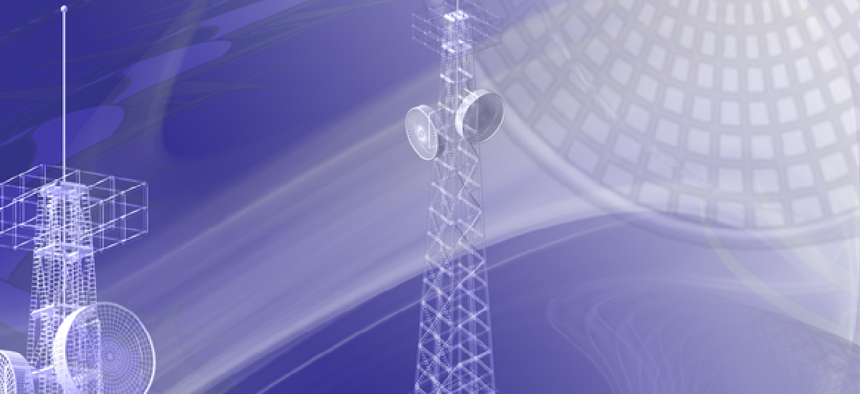FCC upends licensing process for 5G research


Connecting state and local government leaders
To make wireless spectrum research easier, the Federal Communications Commission launched a web portal and experimental licensing system that speeds the license modification process for researchers.
The growing demand for faster, more robust wireless service from consumers, smart city integrators and internet-of-things manufacturers is spurring the need for the next generation of wireless connectivity -- or 5G.
To make it easier to experiment with new technologies and services in the wireless spectrum, the Federal Communications Commission launched a web portal and experimental licensing system (ELS) that speeds the license modification process for researchers.
Previously, researchers had to apply for a new license for every change in an experiment, but the FCC has modified the rules. In April the agency expanded a decades-old program and began accepting applications for its new program licenses, which make it possible for universities, research laboratories, equipment manufacturers and other common applicants to simply post notifications about experiment changes on the portal. FCC staff and the public have 15 days to raise concerns about the modifications; if no objection arises, the licensees can move forward.
“The web portal launched last month provides a means for the licensee to post changes in the experiment, such as a change in the radio frequency, so that existing users of the spectrum are aware and can assess whether they have any concerns about radio interference,” FCC Chief Engineer Julius Knapp said in an email.
To use the portal, an applicant logs into ELS and fills out an online form, describing the nature of the experiment, the frequencies to be used, the location of the tests, power levels and other details -- “basically all of the information needed to evaluate any risk of harmful interference to existing radio services such as cell phone service or TV reception,” Knapp said.
Applicants receive an email with their authorization when FCC grants the experimental license. Then researchers register their new program experiments, which become publicly available on the portal at that point.
“The key software element is PostgreSQL, which allows us to store objects such as shape files,” he said. “Otherwise we employ standard web-development software.”
Since the portal launched on April 14, FCC has granted two licenses and received about six more applications. New York University’s Tandon School of Engineering and the University of Colorado Boulder were the first license recipients and also partners in FCC’s beta testing of ELS.
Researchers at the universities’ wireless communications research centers said the new program licenses and portals will change the course of their work.
“The license will allow the center to do cutting-edge work throughout the spectrum, not just at frequencies critical to 5G, but also far beyond,” said Theodore Rappaport, founding director of NYU WIRELESS, the school’s wireless center, in a statement. The program’s experimental licensing process may be the first of its kind in the world, he added.
“The FCC has turned this process on its head,” said Ken Baker, scholar-in-residence with the Interdisciplinary Telecom Program at CU Boulder’s College of Engineering and Applied Science. The wait time to start experiments has gone from as many as six months to just days, he added.
The application process for experimental licenses and the new program experimental licenses is the same: People submit the applications electronically, and FCC staff review them to minimize the risk of harmful interference to existing radio services. The process takes about four to six weeks on average, Knapp said, and the Office of Engineering and Technology assesses more than 2,000 requests for experimental licenses annually.
In 2016, more than 35 experimental licenses had a 5G focus or were in bands raised in the Spectrum Frontiers proceeding, which last year made spectrum bands above 24 GHz available for 5G, the next generation of wireless with speeds 10 to 100 times faster than 4G LTE, Knapp wrote in a recent FCC blog post.
“We are excited about the opportunities the new program experimental licenses provide for developing new radio technologies such as 5G,” Knapp said. “In fact, this program is a great complement to National Science Foundation grants for developing advanced wireless technologies in several U.S. cities.”
On March 8, NSF announced a $6.1 million, five-year award to speed research on wireless communication and networking technologies through its Platforms for Advanced Wireless Research program, which was announced in July 2016. Working with US Ignite and Northeastern University, NSF will establish and oversee city-scale testing platforms nationwide.




